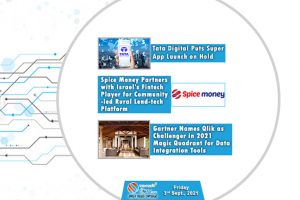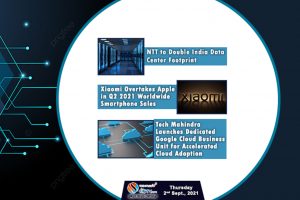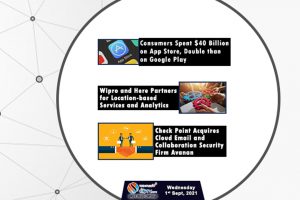Citrix Survey Reveals Born Digitals Poised to Deliver Substantial Economic Gains
According to The Born Digital Effect, the latest research from Citrix Systems, young workers can drive an extra $1.9 trillion in corporate profits if given support to adapt to new realities of work.
Made up of Millennials (born 1981 to 1996) and Generation Z (born after 1997) workers, the Born Digital are the first generation to grow up in an entirely digital world, and now account for most of the global workforce.
Citrix, together with Coleman Parkes Research and Oxford Analytica, conducted The Born Digital Effect study that combined global opinion research from 1,000 business leaders and 2,000 knowledge workers in 10 countries to understand what the Born Digital want from work, with economic modelling to quantify the impact they can have on business and the larger economy.
The highlights of the research include:
- Born Digital employees in India (76%) prefer to retain a remote or hybrid work model post-pandemic
- Younger workers in India are most focused on career stability and security (94%), opportunities for additional qualifications, training, or re-skilling (93%), and access to quality workplace technology (92%)
- 76% of Born Digital in India believe that employers should offer the opportunity to work a four-day week to promote employee well-being post-pandemic
- Only a fifth of Indian business leaders use instant messaging apps like Slack or WhatsApp for work purposes, compared to almost 90% of Born Digital employees
- A third of Born Digital employees surveyed in India would leave an organization that lacked purpose, compared to over 70% of business leaders
- 86% of Born Digital employees in India believe that the pandemic has shown that their organization needs to invest more in digital technology, compared to 16% of business leaders.
Bosch Launches Phantom Edge for Real-Time Electrical Energy Consumption
Robert Bosch Engineering and Business Solutions (RBEI) has unveiled the new Phantom Edge – an AIoT platform, which combines the power of Artificial Intelligence and the Internet of Things to provide real-time view of electrical energy consumption, operating usage, electrical parameters, and appliance-level information.
Phantom Edge uses non-intrusive sensors to collect power signatures and ML algorithms sitting on the edge, analyses these signatures to provide a real-time view of electrical energy consumption, operating usage, electrical parameters, and appliance-level information and thereby creates its digital twin. This information will help in improvising sustainability and productivity metrics. It also provides input on critical safety, machine maintenance and early warnings on malfunction.
Avaya Enables Free Medical Consultations through MedicSetu
Avaya has joined hands with a group of non-profit organizations and doctors to rapidly improve Covid-19 patients’ access to free healthcare while easing the stress on hospitals and clinics struggling with patient care.
Available nationwide and built under the direction of Hon’ble Minister Shree Ravi Shankar Prasad, Ministry of Electronics and Information Technology (MeitY), MedicSetu gives Covid-19 patients under home quarantine the ability to participate in free video consultations with qualified doctors using a virtual platform. This greatly increases citizens’ access to medical advice while easing the burden on stretched resources at healthcare institutions.
Created by Avaya and I-Novate in collaboration with MySenior Doctors, the platform acts as a virtual out-patient department, using the Avaya Spaces workstream collaboration solution to connect patients directly to doctors in private virtual rooms. The non-profit organizations Rotary India, Arogya Foundation of India, and the Manav Mitra Foundation also contributed to the initiative.






















